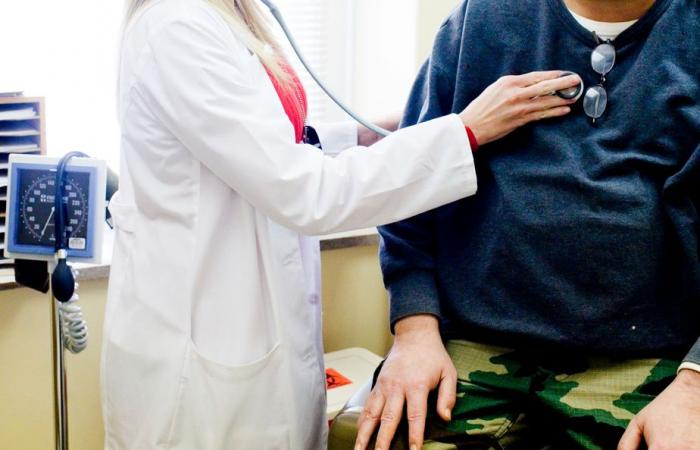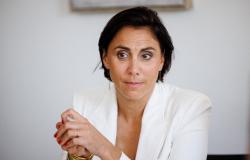New step taken for the possible integration of physician assistants in Quebec. The faculty of medicine at Université Laval is beginning the development of a master’s program to train these professionals, in collaboration with the Canadian Armed Forces. An initiative welcomed by the doctors’ federations.
Published at 7:30 p.m.
What you need to know
- Laval University is beginning the development of a master’s program to train physician assistants.
- These professionals, who are supervised by doctors, perform physical examinations of patients, make diagnoses and prescribe treatments, among other things.
- Physician assistants have a long history of practice in the Canadian Armed Forces and several Canadian provinces.
- In Quebec, a two-year pilot project is underway in James Bay.
Physician assistants have been present in the Canadian Armed Forces for around forty years. They arrived in public health networks in Canada around twenty years ago, first in Manitoba, then in Ontario. They now practice in several provinces.
Their role? Perform a physical examination of the patient, perform diagnoses and follow-ups, prescribe tests and treatments or assist a specialist – an orthopedist, for example – in outpatient consultation or even during operations. All under the supervision of a doctor (see the box “What’s the difference with an IPS?”).
In Quebec, the profession is not recognized. But a pilot project was launched in April in James Bay. And another is “on track” in orthopedics in Montérégie, indicates the office of Minister of Health Christian Dubé.
The physician assistant model is a very interesting idea. We will obviously offer our full collaboration to support the rapid development of training for physician assistants here in Quebec, in French.
Office of the Minister of Health
According to Laval University, the future master’s program would be the first offered in French in the country. Soldiers and civilians could register.
An initiative that delights Jean-Nicolas Chagnon, director for Quebec of the Canadian Association of Physician Assistants (CAMA). Its group has 1000 members. “Studies show us an increase in the effectiveness of the physician who works with the physician assistant by almost 30%,” he says.
Pilot project in James Bay
Launched in April, the pilot project in James Bay took off a few weeks ago. Five physician assistants work in family medicine clinics under the supervision of physicians.
“They will do the follow-ups themselves and even take care of them,” says the Dr François Prévost, director of professional services at the Cree Council of Health and Social Services of James Bay. Thanks to their training in trauma and critical care, they will be able to work shifts in the emergency room.
In Montérégie, orthopedic surgeon Michel Leroux says he is ready to set up a pilot project in orthopedics. A consultant for the Canadian Armed Forces for 20 years, he works with physician assistants at the Saint-Jean-sur-Richelieu military base.
“A physician assistant is trained to think like a doctor,” explains the orthopedic surgeon, who also practices at the Haut-Richelieu Hospital.
“When we have a lot of work to do during the day, there are two of us to do our job. I can delegate at least 60% of the tasks I have to do to an outpatient clinic. » The Dr Leroux trained a physician assistant to perform infiltrations under ultrasound.
Doctors unions in favor
Doctors’ unions say they are in favor of the integration of physician assistants in Quebec. “All the professionals who can come and help to improve accessibility on the front line, we are getting on board,” says the president of the Federation of General Practitioners of Quebec, Dr.r Marc-André Amyot.
Same speech at the Federation of Specialist Physicians of Quebec. “For us, anything that will increase access to specialized medicine, we are up for it,” says its professional director, Dr.r Rafik Ghali.
The College of Physicians believes that “the contribution of physician assistants is a possible solution to consider” at a time when there is a labor shortage, which has an impact on access to care. He is collaborating on the pilot project in the Far North, an “underserved region in Quebec,” he writes.
“This pilot project will contribute to the reflection on the place of physician assistants in the health network in Quebec and the supervision measures for these professionals,” we write. The project lasts two years.
What is the difference with IPS?
The physician assistant, who holds a bachelor’s degree in health sciences (e.g. occupational therapy or physiotherapy) and a master’s degree in this field, is supervised by a physician, which is not the case for a specialist nurse practitioner (IPS). His training is “modeled” on that of medical students, according to Jean-Nicolas Chagnon. “Its scope of practice is expandable,” he says. It is the mirror of that of the doctors with whom he works. » IPS carry out eight professional activities, such as diagnosing illnesses and prescribing treatments, in their specific specialty: first line, mental health, neonatology, care of adults or children.






